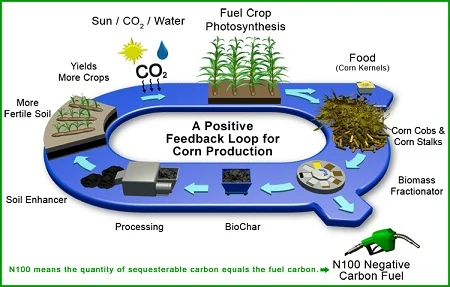One way to judge a startup is by its backers, and CoolPlanet BioFuels certainly has a roster that suggests the next-generation cellulosic biofuels company is up to something interesting with its “negative carbon fuel.”
And the latest news – that BP has joined earlier backers such as General Electric, Google Ventures, ConocoPhillips, NRG and North Bridge Venture Partners in a C Round of financing for the company – only heightens the excitement.

On the other hand, there’s the dismal reality of cellulosic biofuels, which now appear as a barely visible speck in the clean energy firmament, despite big ambitions.
While the 2007 Energy Independence and Security Act set a U.S. goal of producing 500 million gallons of such fuels in 2012, the Environmental Protection Agency (EPA) just announced that refiners will only have to use 8.65 million gallons of the stuff this year, because that’s all the EPA believes can be produced. And even that minuscule amount is unrealistic, say refiners, who will have to pay a $1.20 per gallon credit if they come in under the target.
“Once again, EPA has acted unwisely to make a bad law worse with regulations not based on reality and science,” National Petrochemical & Refiners Association President Charles T. Drevna complained in a statement. ”Once again, refiners are being ordered to use a substance that no one is producing in commercial quantities – cellulosic ethanol – and are being required to pay millions of dollars for failing to use this non-existent substance. This makes no sense.”
Well, maybe CoolPlanet can save the day. The company claims a proprietary biomass fractionator technology that “extracts useful hydrocarbons from biomass” – those are its drop-in fuel streams, made from things like corn stalks and cobs – “leaving behind the excess carbon as a high purity solid” – and that’s a potential fertilizer.

In calculating the carbon footprint of its process, CoolPlanet figures carbon is removed from the atmosphere by photosynthesis when its raw material is grown, and then carbon is sequestered in the ground when it’s used as a fertilizer, or simply buried.
So CoolPlanet isn’t selling itself as simply a fuel company – it’s saying it will help save the planet.
“CoolPlanet BioFuels N100 fuel is quite possibly the most economical way to actually remove carbon from the atmosphere permanently and, thus, reverse the effects of global warming,” the company claims.
The corporation envisions this process unfolding with a flexible infrastructure; it says its CoolPlanet Energy Systems would combine the biomass fractionator “with an ‘open architecture’ chemical processing section in standard modular shipping containers which can each produce up to 2 million gallons of fuel per year.”
It’s a great story, and one that has clearly appealed to investors. Will it work as wonderfully as it sounds? If it does, it will come as a welcome surprise to many analysts. A comprehensive study of biofuels conducted for the National Academy of Sciences and released in late 2011 concluded that the U.S. was unlikely to reach its cellulosic biofuels targets unless “innovative technologies are developed that unexpectedly improve the … production process, and technologies are scaled up and undergo several commercial-scale demonstrations in the next few years to optimize capital and operating costs.”






